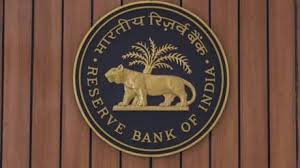
The Reserve Bank of India (RBI) has enabled the linking of credit lines to the Unified Payments Interface (UPI), revolutionising digital payments in India. This allows users to access pre-sanctioned credit directly through the UPI platform, effectively turning every UPI app into a potential point-of-sale for credit. The process involves a one-time mandate where a user consents to link a specific credit line offered by a bank or fintech lender to their UPI ID. Once linked, users can then use UPI to make payments, with the transaction amount being deducted from their available credit limit instead of their bank account balance.
This innovation significantly expands credit access, particularly for those who may not have traditional credit cards or easy access to consumer lending. Instead of relying solely on debit cards or net banking, users can now leverage credit for their everyday UPI transactions. This has the potential to drive financial inclusion by bringing more individuals into the formal credit ecosystem. The framework emphasizes responsible lending practices, requiring lenders to adhere to regulatory guidelines and transparently disclose interest rates, fees, and repayment terms. This ensures consumers are fully aware of the costs associated with using credit on UPI.
The technology underpinning this system is built upon the existing UPI infrastructure, ensuring interoperability and ease of use. When a user initiates a UPI payment using their linked credit line, the transaction is routed through the UPI network, and the lender approves the payment based on the user’s available credit. The payment is then settled between the merchant’s bank and the lender. This seamless integration leverages the existing digital payments ecosystem, making credit on UPI a convenient and accessible option for both consumers and merchants. The success of this initiative hinges on collaboration between banks, fintech companies, and the National Payments Corporation of India (NPCI) to ensure a secure and efficient user experience.
For consumers in India, the potential advantages of credit on UPI are considerable. The most immediate benefit is increased credit access. Many individuals, especially those new to the workforce or with limited credit history, find it challenging to obtain traditional credit cards. UPI credit lines offer a readily available alternative, allowing them to make purchases and manage their finances more effectively. This innovation democratises access to consumer lending, extending financial opportunities to a broader segment of the population.
Furthermore, the convenience factor is a major draw. Integrating credit directly into the UPI platform streamlines the payment process. Consumers no longer need to carry multiple cards or switch between different payment apps. The familiar UPI interface simplifies transactions, making it easier for users to adopt and utilise credit on UPI for their daily needs. This ease of use can encourage responsible spending and better financial management, as users have a clear view of their credit usage within their existing UPI app.
The boost to financial inclusion is another significant advantage. By providing access to formal credit channels, UPI credit lines can help individuals build a credit history and improve their creditworthiness. This, in turn, can unlock access to other financial products and services, such as loans for education, housing, or business ventures. Moreover, the transparent and regulated nature of UPI credit promotes responsible lending practices, protecting consumers from predatory lending and ensuring fair terms and conditions. This makes credit on UPI a powerful tool for empowering consumers and promoting economic growth.
Despite the promising outlook, several challenges and concerns surround the widespread adoption of credit on UPI. One primary concern is the potential for over-indebtedness. The ease of access to credit through UPI could lead some users to accumulate debt beyond their capacity to repay. This risk is particularly acute among vulnerable populations with limited financial literacy. Robust consumer education initiatives and responsible lending practices are essential to mitigate this risk and ensure users understand the terms and conditions of their credit lines.
Another challenge lies in the need for robust risk management systems. Lenders need to develop sophisticated models to assess creditworthiness and manage the risk of default. This requires access to comprehensive data and the ability to accurately predict repayment behaviour. Furthermore, effective fraud detection and prevention mechanisms are crucial to safeguard the system against fraudulent transactions and protect both lenders and consumers. Collaboration between banks, fintech companies, and regulatory bodies is vital to establish a secure and reliable credit ecosystem on UPI.
Data privacy and security are also paramount concerns. Linking credit lines to UPI involves sharing sensitive financial information, raising concerns about data breaches and misuse. Strong data protection measures, including encryption and access controls, are necessary to ensure the confidentiality and integrity of user data. Clear and transparent data privacy policies are also essential to build trust and encourage adoption. Addressing these challenges proactively will be critical to realising the full potential of credit on UPI and ensuring it benefits all stakeholders in India.